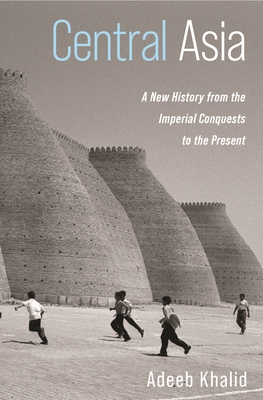Expedite your nonfiction book discovery process with Readara interviews, summaries and recommendations, Broaden your knowledge and gain insights from leading experts and scholars
In-depth, hour-long interviews with notable nonfiction authors, Gain new perspectives and ideas from the writer’s expertise and research, Valuable resource for readers and researchers
Optimize your book discovery process, Four-to eight-page summaries prepared by subject matter experts, Quickly review the book’s central messages and range of content
Books are handpicked covering a wide range of important categories and topics, Selected authors are subject experts, field professionals, or distinguished academics
Our editorial team includes books offering insights, unique views and researched-narratives in categories, Trade shows and book fairs, Book signings and in person author talks,Webinars and online events
Connect with editors and designers,Discover PR & marketing services providers, Source printers and related service providers

Central Asia: A New History from the Imperial Conquests to the Present
History > Asia - Central Asia
- Princeton University Press
- Hardcover
- 9780691161396
- -
- -
- History > Asia - Central Asia
- (Single Author) Asian American
- English
Readara.com
Book Description
A major history of Central Asia and how it has been shaped by modern world events
Central Asia is often seen as a remote and inaccessible land on the peripheries of modern history. Encompassing Uzbekistan, Tajikistan, Turkmenistan, Kyrgyzstan, Kazakhstan, and the Xinjiang province of China, it in fact stands at the crossroads of world events. Adeeb Khalid provides the first comprehensive history of Central Asia from the mid-eighteenth century to today, shedding light on the historical forces that have shaped the region under imperial and Communist rule.
Predominantly Muslim with both nomadic and settled populations, the peoples of Central Asia came under Russian and Chinese rule after the 1700s. Khalid shows how foreign conquest knit Central Asians into global exchanges of goods and ideas and forged greater connections to the wider world. He explores how the Qing and Tsarist empires dealt with ethnic heterogeneity, and compares Soviet and Chinese Communist attempts at managing national and cultural difference. He highlights the deep interconnections between the Russian and Chinese parts of Central Asia that endure to this day, and demonstrates how Xinjiang remains an integral part of Central Asia despite its fraught and traumatic relationship with contemporary China.
The essential history of one of the most diverse and culturally vibrant regions on the planet, this panoramic book reveals how Central Asia has been profoundly shaped by the forces of modernity, from colonialism and social revolution to nationalism, state-led modernization, and social engineering.
Author Bio
My work centers on the history of the sedentary societies of Central Asia from the time of the Russian conquest of the 1860s to the present. I am particularly interested in the transformations of culture and identity as a result of historical change. The fate of Islam under Tsarist and Soviet rule has occupied a central place in my research. I am also interested in questions of nationhood and national identity, of empire and colonialism, and of the politics of anticolonialism.
My research has been supported by grants from a number of foundations: the Guggenheim Foundation, the Carnegie Corporation, the National Endowment for the Humanities, the American Council of Learned Societies, ACCELS/ACTR, the National Council for Eurasian and East European Research, and IREX. I have held visiting research positions at the Maison des Sciences de l’Homme in Paris and at the Kluge Center for Scholars at the Library of Congress in Washington, DC.
Over the years, I have published three books, The Politics of Muslim Cultural Reform: Jadidism in Central Asia (University of California Press, 1998), Islam after Communism: Religion and Politics in Central Asia (University of California Press, 2007; reissued with a new afterword in 2014), and Making Uzbekistan: Nation, Revolution, and Empire in the Early USSR (Cornell University Press, 2015).
Islam after Communism won the 2008 Wayne S. Vucinich Book Prize of the American Association for the Advancement of Slavic Studies “for the most important contribution to Russian, Eurasian, and East European studies in any discipline of the humanities or social sciences published in English in the United States in the previous calendar year.” In the fall of 2016, Making Uzbekistan was awarded the Reginald Zelnik Book Prize in History by the same organization. The book also won Honorable mention for the Joseph Rothschild Prize in Nationalism and Ethnic Studies awarded by the Association for the Study of Nationalities.
Central Asia: A New History from the Imperial Conquests to the Present will be published in spring 2021 by Princeton University Press, As the name suggests, it is a general history of Central Asia from the middle of the eighteenth century to the present. It provides an integrated narrative of the “Russian” and “Chinese” parts of Central Asia.
Education & Professional History
University of Punjab, Lahore, BA; McGill University (Montreal), BA; University of Wisconsin (Madison), MA, PhD
My scholarly work is on Central Asia, which lies at the intersection of (and is integrally a part of) both the Muslim and the Russian/Soviet worlds. I teach a variety of courses on Central Asia, Russia, and the Middle East. Thematically, I am interested in issues connected with culture and cultural change, empire and colonialism, and nationhood in its various manifestations.
At Carleton since 1993.
Organizations & Scholarly Affiliations
Central Eurasian Studies Society (president, 2005-06)
Association for Slavic, East European, and Eurasian Studies (member, executive board, 2013-15)
American Historical Association
Association for the Study of Persianate Societies
Ottoman & Turkish Studies Association
European Seminar on Central Asian Studies
Source: Carleton University and Princeton University Press
Videos




Community reviews
No Community reviews

